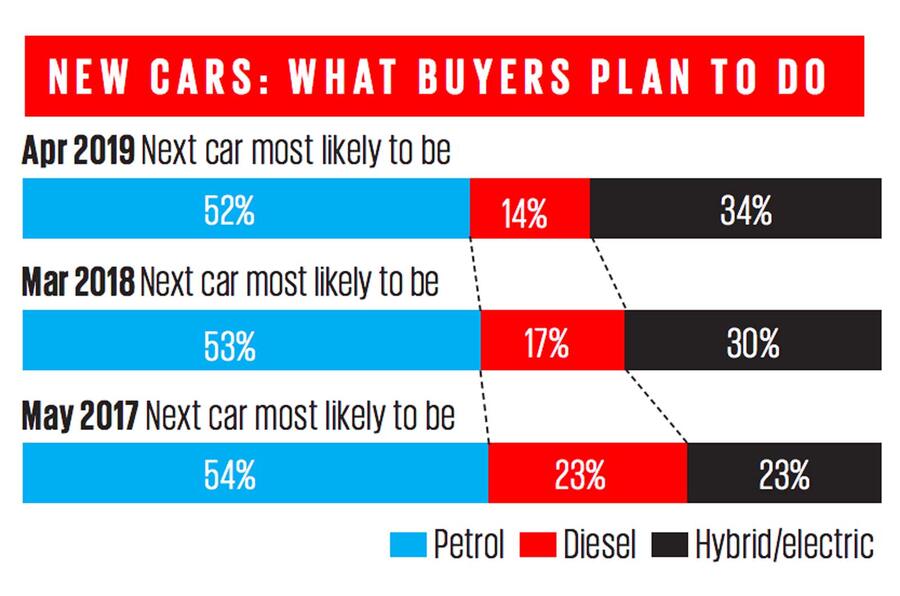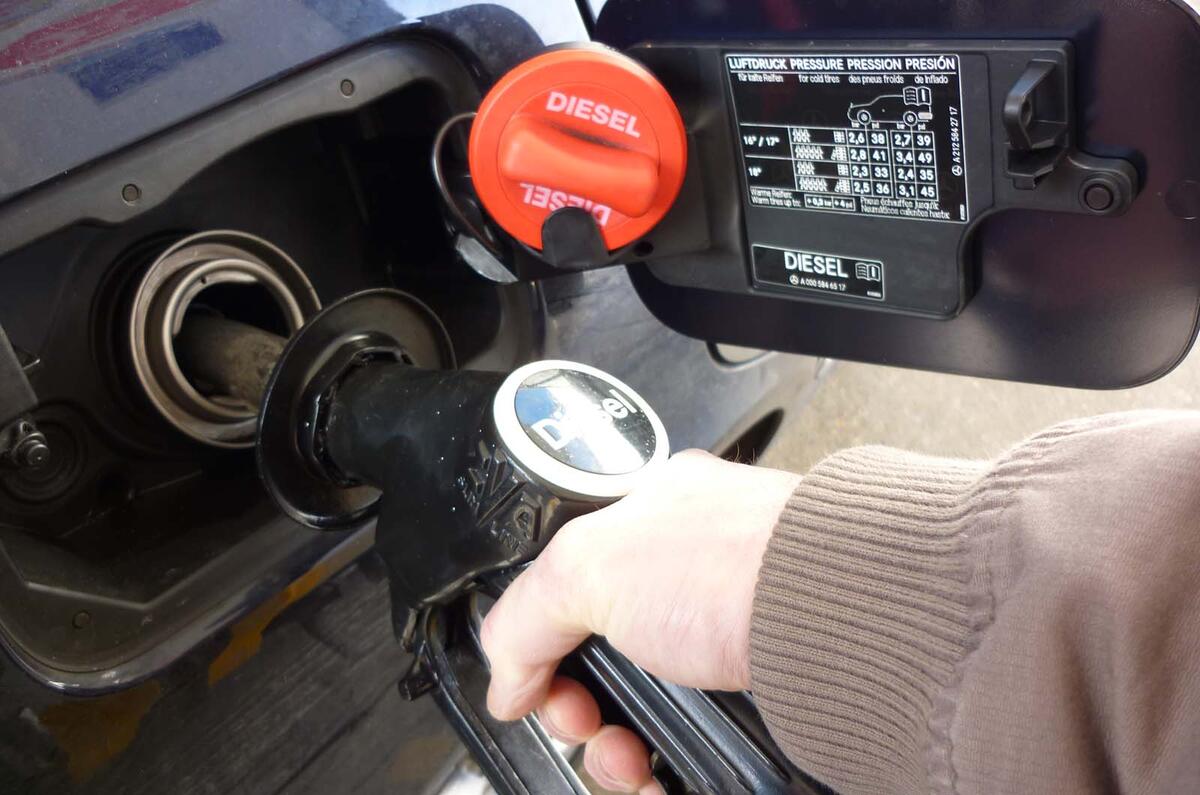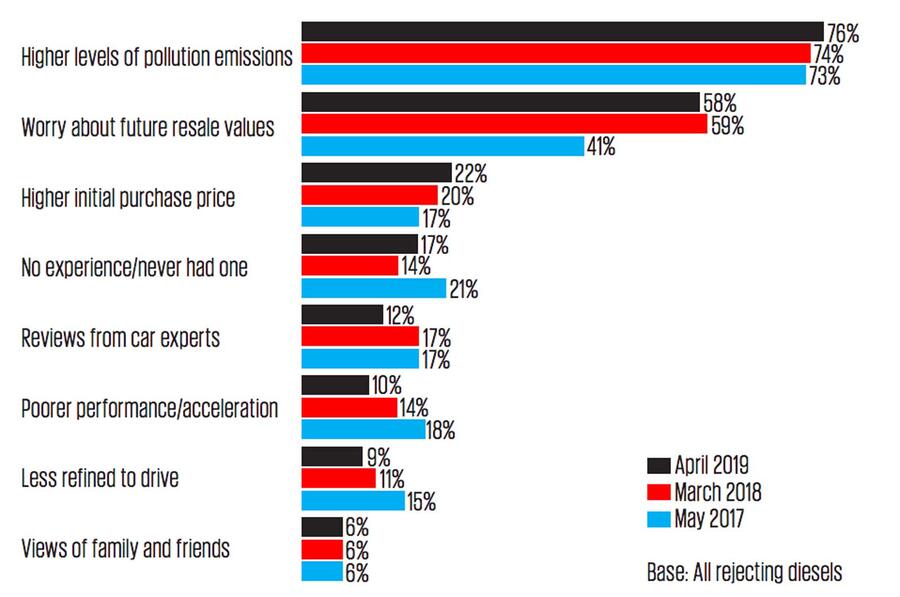It’s hard to believe that just two years ago, almost half of the new cars sold in the UK were diesel.
In May 2017, in the first of a series of powertrain studies done for Autocar, market research firm Simpson Carpenter forecast that within three years diesel sales would fall to 23% of the total new car market – a prediction that was met with some scepticism at the time.
But now, two years on, diesel sales in the first quarter of 2019 have fallen to just 27% of the new car market. So far, the main beneficiary has been petrol. While buyers expressed an intent to buy hybrid or electric, the relative shortage of available models has limited alternatively fuelled vehicles to just 6% of new car sales.
Simpson Carpenter’s most recent research for Autocar suggests the move away from diesel will continue, with just 18% of car buyers – new and used – now expecting their next car to be diesel.
The main shift from diesel is in the new car market, where the proportion of people intending to buy diesel next time is down from 23% in 2017 to just 14%. During the same period, the number of new car buyers expecting to buy a hybrid or electric car has risen from fewer than one in four to more than one in three – growth likely to continue as the choice of models increases.

Even in the used car market, diesel’s popularity continues to wane. Only 21% now intend to buy a diesel next time – just 2% more than those who say they’ll opt for a hybrid or electric car. The very small number of used hybrids and electric cars on the market means a big imbalance between supply and demand for different powertrains.
However, petrol car sales are likely to remain healthy for some time. Although one in five of those with petrol-engined cars say they will defect to hybrid or electric next time round, these losses will be largely mitigated by almost one in three diesel owners who plan to switch to petrol.
Another nail in diesel’s coffin is the increase in the numbers of current owners who reject the fuel outright. One in five diesel owners now reject the fuel and will no longer even consider it for their next car. These gradually increasing levels of rejection continue to be driven by two core concerns: the environmental effects of diesel and concern over future resale values of diesel cars.
The only area in which diesel seems likely to retain a significant foothold is with larger cars. Among owners with cars that have engines of 2.0 litres or more, over half will consider diesel next time, with more than a third picking it as the engine type they’re most likely to buy. Conversely, there seems to be no future for diesel among smaller cars.





Join the debate
Add your comment
Why new car buyers are ditching diesel
Ask VW.. Caught cheating again..
Polls of intentions are worthless
When according to the poll prominently placed 23 in 2017, 30% in 2029 and in 2019 even 34% of the sample polled are supposed to consider an hyvbrid/electtic car as „the most likely“ next car they would buy, but then 2019 just 6% of all new car purchases are „alternatively fuelled“, this shows that such polls are useless, pure propaganda.
And it is not a supposed „relative shortage ofavailable modls“, but — as Lesly Brook wrote in his comment — the lack of „facilities to charge at home“. Andthis long before the charging a lage number of battery-electric cars shows the limit of the electric grid to support this.
As to the colorful graphic showing reasons „why car buyers [are] turning their ack on diesel“ is missing the main reason (especially on the used car market): the fear that one might be prohibited to drive to work in a diesel powered car.
Reliability
It's all well and good saying that modern diesels are as clean as petrols but for how long? Out of the factory they should be fine, but after 100k and intermittent servicing? Perhaps Autocar could look into this. Then there is the question of the long term reliability of modern diesels. There is so much more to go wrong now. If you're doing a high mileage then there is still a place for diesel, but that place is getting much smaller.